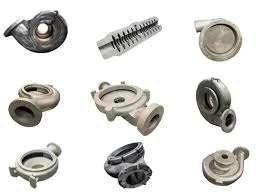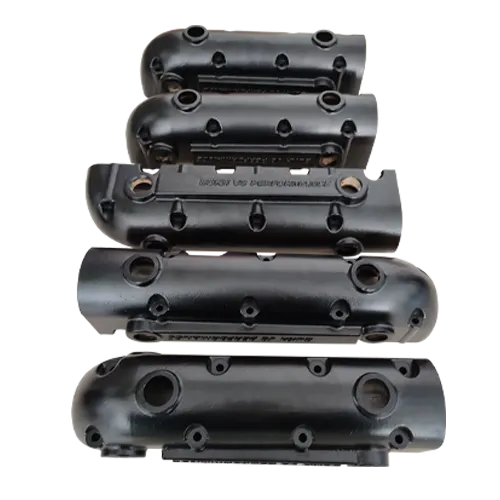Mobile:+86-311-808-126-83
Email:info@ydcastings.com
Jan . 09, 2025 12:10
Back to list
impeller
Impellers, though often overshadowed by the more visible components of engineering marvels, serve as the pulsating heart of fluid-moving mechanisms. Their role is critical, shaping the efficiency and reliability of systems ranging from household washing machines to expansive industrial pumps. An impeller's ability to transform rotary motion into kinetic energy is invaluable in maintaining the seamless flow of liquids and gases across various sectors.
Trust in impeller manufacturers is pivotal. Reputable companies not only provide warranties and thorough post-sales support but also conduct rigorous testing protocols to ensure their products perform reliably over time. Educational webinars, whitepapers, and workshops hosted by these manufacturers further cement their standing as trusted authorities in the fluid dynamics field. For consumers and industries alike, selecting the right impeller involves careful consideration of impeller types—centrifugal, axial, or mixed flow—each suited to particular tasks. Consultation with experts who possess an authoritative grasp on various impeller applications can guide one to make an informed decision tailored to specific operational needs. As sustainability becomes a focal point for industries worldwide, impeller design adapts to this imperative. Innovative designs now focus on reducing waste and improving energy efficiency. The use of eco-friendly materials and smart technologies that monitor and adjust impeller performance in real-time are increasingly integrated into new products, reflecting a shift towards greener engineering solutions. In conclusion, impellers are instrumental in diverse applications, and their choice rests heavily on a balance of experience, expertise, authority, and trust. As technology advances, impellers will continue to evolve, offering greater efficiency, reliability, and sustainability. Industry leaders who excel in these aspects will set the pace, ensuring that systems reliant on fluid movement operate with superior proficiency and minimal environmental impact.


Trust in impeller manufacturers is pivotal. Reputable companies not only provide warranties and thorough post-sales support but also conduct rigorous testing protocols to ensure their products perform reliably over time. Educational webinars, whitepapers, and workshops hosted by these manufacturers further cement their standing as trusted authorities in the fluid dynamics field. For consumers and industries alike, selecting the right impeller involves careful consideration of impeller types—centrifugal, axial, or mixed flow—each suited to particular tasks. Consultation with experts who possess an authoritative grasp on various impeller applications can guide one to make an informed decision tailored to specific operational needs. As sustainability becomes a focal point for industries worldwide, impeller design adapts to this imperative. Innovative designs now focus on reducing waste and improving energy efficiency. The use of eco-friendly materials and smart technologies that monitor and adjust impeller performance in real-time are increasingly integrated into new products, reflecting a shift towards greener engineering solutions. In conclusion, impellers are instrumental in diverse applications, and their choice rests heavily on a balance of experience, expertise, authority, and trust. As technology advances, impellers will continue to evolve, offering greater efficiency, reliability, and sustainability. Industry leaders who excel in these aspects will set the pace, ensuring that systems reliant on fluid movement operate with superior proficiency and minimal environmental impact.
Next:
Latest news
-
Why Should You Invest in Superior Pump Castings for Your Equipment?NewsJun.09,2025
-
Unlock Performance Potential with Stainless Impellers and Aluminum End CapsNewsJun.09,2025
-
Revolutionize Your Machinery with Superior Cast Iron and Aluminum ComponentsNewsJun.09,2025
-
Revolutionize Fluid Dynamics with Premium Pump ComponentsNewsJun.09,2025
-
Optimizing Industrial Systems with Essential Valve ComponentsNewsJun.09,2025
-
Elevate Grid Efficiency with High-Precision Power CastingsNewsJun.09,2025
Related PRODUCTS











